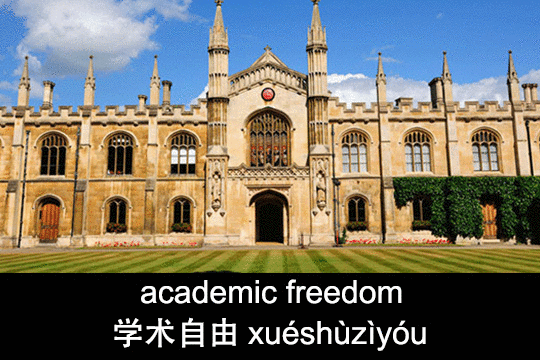Cambridge University Press stands up to censorship orders – China’s latest top news
Jeremy Goldkorn’s selection of the top stories from China on August 21, 2017. Part of the daily The China Project newsletter, a convenient package of China’s business, political, and cultural news delivered to your inbox for free. Subscribe here.

Cambridge University Press reverses self censorship decision
Just as criticism of Cambridge University Press’s decision to comply with censorship in China reached a fever pitch, the highly respected publishing house reversed its decision, posting to Twitter that it had unblocked all 315 articles that it had earlier made inaccessible to users in China in compliance with requests from the authorities. The reposted articles will be available free of charge.
Some reactions:
- Christopher Balding, associate professor at the Shenzhen HSBC School of Business of Peking University, tweeted: “Neither @chinaquarterly or @CambridgeUP are the enemy here. Western universities and academics need to rethink how to engage China.”
- Arthur Waldron, historian, scholar, and author of “There is no Thucydides trap” (published on The China Project in June), told the South China Morning Post: “This is a very, very wise decision on Cambridge’s part because Cambridge, for hundreds of years, has been the gold standard for scholarly publishing, and if they allow one country to say ‘you can’t publish this here,’ they open the door to…interventions and complaints.”
- There has been no official response from China yet, but if there is one, it may be along the lines of this Global Times opinion piece that says: “If they don’t like the Chinese way, they can stop engaging with us. If they think China’s internet market is so important that they can’t miss out, they need to respect Chinese law and adapt to the Chinese way.”
Is it a crime to take a selfie?
It sure was during the Cultural Revolution. The New York Times has a feature (paywall) on the photographs taken by Wang Qiuhang 王秋杭 between 1966 and 1976. You can find more of his photos on Photography of China.
Will Bannon’s departure change U.S. China policy?
Noted China watcher (and Sinica Podcast guest) Bill Bishop rounds up China-related reactions to the end of Stephen Bannon’s tenure at the White House, and says that we should not “expect Trump’s canning of Bannon to reduce U.S.-China tensions,” and that “the structural problems in the relationship can not be smoothed over by a few happy chats between Javanka, Kissinger and Beijing.”






